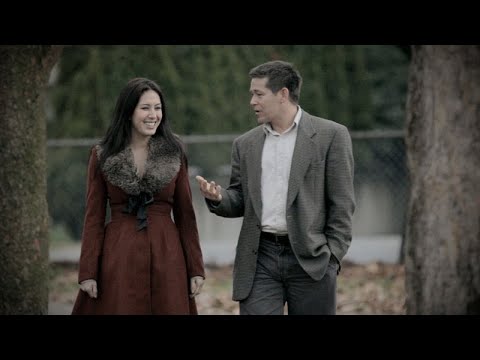Career Overview
Therapists in counselling and related therapies help individuals, families and groups identify, understand and overcome their personal problems and reach their goals. Counsellors may specialize in areas including rehabilitation, addiction, marriage and family therapy, behavioural disorders or trauma. They may practice psychotherapy.
Job Titles
Duties
In general, counsellors:
- Interview clients and prepare case histories
- Assess clients’ problems
- Develop counselling and intervention programs to help clients set and achieve goals
- Provide advice, therapy and mediation
- Run group sessions
- Provide psychotherapy, also called talk therapy
- Set up treatment plan by carrying out specialized therapy sessions using techniques, such as art, dance, drama, music or play
- Provide referrals to community services
- Assess clients’ progress
- Measure the effectiveness of counselling programs and interventions
- Write assessment reports, progress reports, follow-up reports and court reports
They may also:
- Supervise other counsellors, social service staff and assistants
- Provide public education
- Consult with other professionals
- Act as witnesses in court cases
- Research, publish papers and articles, and present at conferences
- Collaborate with employee assistance programs or with government organizations in health and safety or with victims of crime
- Participate in fundraising activities
Earnings
Earnings is income that workers receive in exchange for their labour. Depending on the type of employment, earnings can be in the form of wages (hourly), salaries (fixed monthly or annual) or self-employed earnings.
Work Environment
# Workers Employed
7,300% Employed Full Time
43%Some counsellors work in private practice, either on their own or in group clinics. Others work for community-based agencies like hospitals, schools, universities or justice-related organizations.
Counsellors may work in offices or in facilities such as group homes, health-care centres or rehabilitation centres. Remote counselling has also become more common as technology advances.
Counsellors use computers to do record keeping and administrative work.
Career Pathways
New graduates can find entry-level counselling work in community-based organizations, counselling programs and schools. Many go into private practice, either on their own or in clinics with other counsellors.
With training and experience, counsellors can specialize in a particular area of practice. They may also move on to management positions.
Occupational Interests
It’s important to understand what kinds of occupations align with your interests.
For more about occupational interests visit Skills for the Future Workforce > Characteristics.
Here are the top occupational interest(s) for this career profile:
Education, Training and Skills
Most jobs require a master’s degree in counselling, therapy, mental health, psychology or a related social service area. A period of supervised clinical work with clients may be required.
Certain roles may only call for an undergraduate degree or college diploma in a social science.
Counsellors who specialize in specific issues or areas often need extra training. All counsellors can gain useful skills by doing volunteer social service work.
A master’s degree in the field of therapy is required for art therapists, music therapists, and dance therapists.
Membership with a provincial or federal association is usually required by employers.
Counsellors in B.C. are not regulated and do not need an official designation to practise. But those who wish to get a formal designation can do so by joining a provincial or national association. To use the title Registered Clinical Counsellor, for example, counsellors must become members of the BC Association of Clinical Counsellors. To use the title Registered Marriage and Family Therapist, counsellors must become members of the British Columbia Association for Marriage and Family Therapy. To join these associations, counsellors must complete specialized training and a period of supervised clinical work with clients. They must also follow a code of ethics and commit to continuing education.
Education programs in B.C.

Top Skills
Every job calls for a certain set of skills. Knowing those skills is the first step in finding a good career fit.
Here, you will find the 10 most relevant workplace skills. Some are more important to achieving success in a certain career than others. These skills may come naturally to you or you may need to gain them through education, training and experience.
See the list of work-related skills below, ranked in order of importance for this career. Check out the list and see if this career matches your skills—take that first step!
Giving full attention to what other people are saying, taking time to understand the points being made, asking questions as appropriate, and not interrupting at inappropriate times.
Being aware of others’ reactions and understanding why they react as they do.
Understanding written sentences and paragraphs in work-related documents.
Talking to others to share information effectively.
Using logic and reasoning to identify the strengths and weaknesses of alternative solutions, conclusions or approaches to problems.
Communicating effectively in writing as appropriate for the needs of the audience.
Considering the relative costs and benefits of potential actions to choose the most appropriate one.
Actively looking for ways to help people.
Keeping track of and assessing your performance, other individuals, or organizations to make improvements or take corrective action.
Being able to solve novel, ill-defined problems in complex, real-world settings.
Labour Market Statistics
Discover data, facts and information that have been gathered and analyzed. Learn about the characteristics of the economy and labour market in B.C.
Employment
Find out about employment types and trends by region and industry.
Employment
7,300Employment by Region







| Region | Employment | % Employment of this Occupation |
|---|---|---|
| Cariboo | 190 | 2.6% |
| Kootenay | 250 | 3.4% |
| Mainland/Southwest | 4,095 | 56.1% |
| North Coast and Nechako | 100 | 1.4% |
| Northeast | 65 | 0.9% |
| Thompson-Okanagan | 785 | 10.8% |
| Vancouver Island/Coast | 1,820 | 24.9% |
Labour Market Outlook
The B.C. Labour Market Outlook is a 10-year forecast of the expected supply and demand for labour in the province. It’s usually updated every year. The purpose is to provide British Columbians with the knowledge to make informed decisions on careers, skills training, education and hiring.
Forecasted Job Openings (2025-2035)
4,510Forecasted Job Openings
Forecasted Employment Growth Rate
Composition of Job Openings
Job Openings by Region (2025-2035)







| Region | Job Openings | Avg. Annual Employment Growth |
|---|---|---|
| Cariboo | 100 | 1.3% |
| Kootenay | 150 | 1.6% |
| Mainland/Southwest | 2,480 | 2.0% |
| North Coast and Nechako | 60 | 1.3% |
| Northeast | 40 | 1.1% |
| Thompson-Okanagan | 560 | 2.0% |
| Vancouver Island/Coast | 1,120 | 1.9% |
Industry Highlights
Learn about the opportunities in B.C.'s major industries, including employment trends, earning potential, locations of work and more.
Forecasted Job Openings by Industry
| Industry | Job Openings (2025-2035) |
|---|---|
| Health Care and Social Assistance | 4,270 |
| Public Administration | 60 |
| Educational Services | 50 |
| Repair, Personal and Non-Profit Services | 50 |
| Professional, Scientific and Technical Services | 50 |
Insights from Industry
As people become more aware of the importance of good mental health, the demand for counselling has increased. At the same time, education programs have expanded so that they can produce enough new graduates to generally meet the demand.
Nevertheless, demand for qualified counsellors continues to be high in northern and more remote parts of B.C. Demand is also high for counsellors who specialize in family conflict, addiction, and new citizens and immigrants.
Resources
-
Association of Cooperative Counselling Therapists of Canada (ACCT)acctcounsellor.com
-
Association of Registered Clinical Hypnotherapists (ARCH)archcanada.ca
-
BC Association of Clinical Counsellors (BCACC)bc-counsellors.org
-
British Columbia Association for Marriage and Family Therapy (BCAMFT)www.bcamft.bc.ca
-
Canadian Addiction Counsellors Certification Federation (CACCF)caccf.ca
-
Canadian Counselling and Psychotherapy Association (CCPA)www.ccpa-accp.ca
-
Federation of Associations for Counselling Therapists in British Columbia (FACTBC)factbc.org
-
International Association of Counselling Hypnotherapists (IACH)www.hypnotherapyassociation.org








